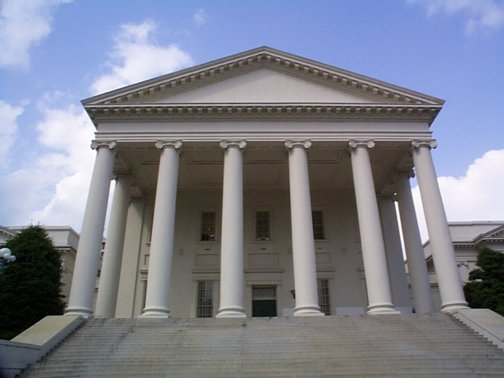 A mostly-veteran group of state lawmakers from the Roanoke area head back to Richmond in mid-January for the 2016 General Assembly session – with newcomer David Sutterlein in tow. He’s the Republican state senator in the 19th district now, replacing his boss the retired Ralph Smith after easily beating two other political newcomers in November.
A mostly-veteran group of state lawmakers from the Roanoke area head back to Richmond in mid-January for the 2016 General Assembly session – with newcomer David Sutterlein in tow. He’s the Republican state senator in the 19th district now, replacing his boss the retired Ralph Smith after easily beating two other political newcomers in November.
Democratic state Senator John Edwards survived a challenge from challenger Nancy Dye in the 21st district; GOP delegates Greg Habeeb and Chris Head had no opposition in the November election. Neither did Democratic delegate Sam Rasoul (11th district), who again says he will introduce several bills in the House chamber concerning redistricting and other issues once he returns to Richmond.
Rasoul calls it his “Good Government Legislation” package. Last year he introduced another bill aimed at making the drawing of voting districts a non-partisan process, but Rasoul says this new legislation is different. “I believe we have seen more momentum around redistricting reform … people see that it’s unethical for politicians to draw their own district lines.” A handful of states have put that line drawing in the hands of a bi-partisan, non-political commission, which is where Rasoul wants to head.
There are also several lawsuits pending in Virginia concerning the way certain districts were laid out, specifically how minority voters in the Tidewater area were packed into one district, allegedly impacting the voting outcome in several neighboring districts as well. “We want to restore trust back in government,” said Rasoul of his new bill.
Term limits for state lawmakers is a concept Rasoul will introduce for the first time and so is a method he said that is used in several states: an “open primary” where everybody regardless of party runs in a primary – with the top two finishers squaring off in the general election. Rasoul claims it will lead to less partisan campaigns and spur more interest among the voters.
“[Incumbent] politicians may largely not enjoy that … but it broadens the base of people that would be involved in political discourse.” Nebraska, California and Washington State employ some version of open primaries and Rasoul said there is also a “top two system,” used in Louisiana in the most recent governor’s race.
Restoring trust in government said Rasoul involves “systemic reforms to fix the system, so people do not feel alienated by the political process.”
Case in point as to why more people don’t get involved added Rasoul: all 122 incumbents that ran for reelection to state office in November won – all of them, “for the first time [in history]. People are realizing that their vote is not that impactful” It’s also why Rasoul will bring up term limits for delegates and senators when he returns to the capitol.
“We need to find ways of reversing that trend,” said Rasoul of the alienation that now keeps a majority of voters away from the polls. It’s debatable as to whether any or all of his bills will gain much traction – for one thing Democrats are in the minority in both chambers of the General Assembly – but Rasoul will keep pushing for what he bills as being “a Good Government legislation package.”
By Gene Marrano

